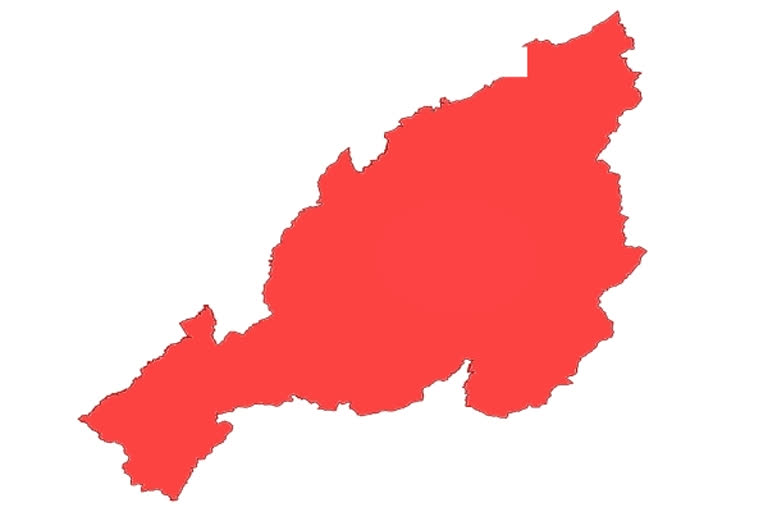New Delhi: Unity may not be a strength in all cases. Recent developments in the state politics of Nagaland are already casting aspersions at this old-age adage.
After the state assembly was rendered bereft of any opposition in the aftermath of a series of planned mergers, cracks have been wracked open and discords laid bare in the fabric of the new united entity.
Unable to resolve the contentious issues on their own, all MLAs of the state are in the process of flying to New Delhi to brainstorm with the ‘available guidance’ of party seniors.
“About 16 of the MLAs are already camping in the national capital. The rest are expected to arrive by Thursday or so. On being asked, a few MLAs said they are in Delhi for ‘training’ purposes,” a source familiar with the development told ETV Bharat requesting anonymity.
The 60-member, but effectively 59-member Nagaland state assembly currently, has three main political entities—the National Democratic Progressive Party (NDPP) with 20 MLAs, the BJP with 12, and the National People’s Front (NPF) with 26.
The ruling dispensation called the People’s Democratic Alliance (PDA) is headed by Chief Minister Neiphiu Rio of the NDPP with the BJP being the junior partner after the 2018 pre-poll alliance. The NPF was the only opposition that, interestingly, was a party led by Rio before the state polls.
Also read: Nagaland to have opposition-less Legislative Assembly
But that was only until recently.
On August 16, CM Rio took to Tweeter to announce the merger of NPF with the ruling regime: “I am happy that the Nationalist Democratic Progressive Party (NDPP), Bharatiya Janata Party (BJP), Nagaland and Naga People's Front (NPF) have come together for an opposition-less government towards achieving our common goal for an early and peaceful solution to the ‘Naga Political Issue’.”
Not that it was a surprise.
On July 19, the NPF had “unanimously endorsed the concept of Opposition-less government” with PDA in order “to facilitate” the Naga political issue to achieve an honourable and acceptable solution.
And a new entity was formed. A release signed by the three parties grandly announced: “Henceforth, the new nomenclature of the government shall be called Nagaland Unity Government (NUG).”
But in NUG’s birth also lay the seeds of dissatisfaction that has given way to acrimony.
With the next state polls due in 2023, the three entities are already eyeing each other with suspicion.
Post-merger, the NPF would look forward to the award of ministerial berths, the NDPP may be opposed to it while the BJP suspects the NDPP may erode its constituency.
Rather ruefully, a disgusted leading Naga activist said: “These political entities are looking at their own interests using the pretext of the Naga peace process, which of course is caught in the doldrums. If they have decided on an opposition-less government in the state, their primary duty should have been an effort and thrust to resolve the longstanding Naga issue.”
Also read: Breakthrough in Assam-Nagaland border dispute: Two states start withdrawing forces
Citing self-determination rights, the Naga movement began with a demand for total sovereignty but has largely watered down now to a demand for more autonomy and control over resources.
The government has been in talks with leaders of the Naga movement that kick-started in 1997 with the Isak-Muivah faction of the Nationalist Socialist Council of Nagalim (NSCN). In the past 24 years, besides Delhi and Nagaland, talks have been held in Paris, Geneva, Zurich, Amsterdam, Chiang Mai (Thailand), London, Osaka, Malaysia, and The Hague.
In 2015, a significant event took place when a framework agreement was signed between the government and the NSCN (IM) amid much fanfare with PM Narendra Modi and the Union home minister in attendance. But a final solution has been elusive thus far.



